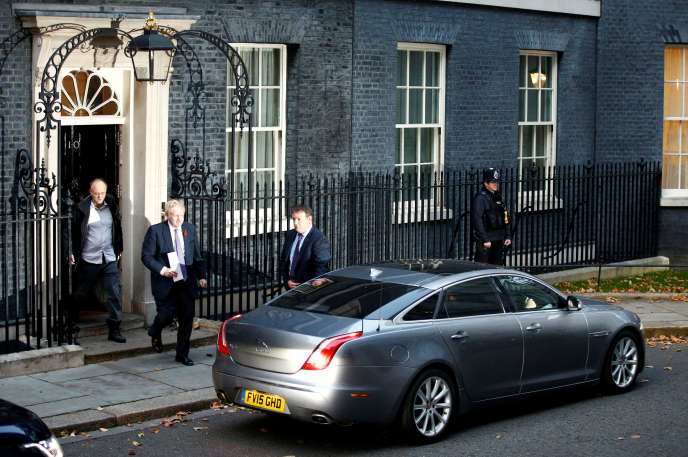
Too absent, but at the same time too centralizing and too abrupt. Boris Johnson's way of governing is starting to be controversial, including in his conservative camp. On Wednesday, February 26, Sajid Javid, the former Chancellor of the Exchequer, criticized the Prime Minister, in a packed House of Commons, for having acted "Against national interests" by demanding that he separate from all his advisers in order to better oversee his ministry.
It was this demand that prompted Mr. Javid to resign in mid-February. From Westminster, the member for Bromsgrove (central England) said that"A chancellor, like any other minister, must be able to give a sincere opinion to a prime minister, he must be able to tell him the truth. (…) The proposed arrangement would not have been in the national interest. "
Relations between "Number 10" (Downing Street) and "Number 11" (the Chancellery) may have evolved over time, Javid said, but must be based on "Mutual respect and trust, to allow creative and constructive tension between the teams". " Councilors advise, ministers decide and they decide (of fate) of their advisers ", he concluded, in a transparent allusion to Dominic Cummings, the chief adviser of Boris Johnson.
"Career Psychopath"
The latter can be proud of having successfully carried out the “Leave” campaign in 2016, and of having been right again, in December 2019: with his basic slogan (“let's achieve Brexit”), Mr. Jonhson won dozens of Labor strongholds in northern England in the general election. But Mr. Cummings' plan to completely reform Whitehall (the ministries) is shocking.
Renowned for his rudeness and his contempt for conventions, plagued for years against a public administration deemed dysfunctional, Mr. Cummings called in a blog post, at the beginning of January, for the hiring at Downing Street of a few "Crazy and unsuitable" in order to shake up its operation. The call surprised in a country where senior officials are known for their integrity and praised for their skills. The one former Prime Minister David Cameron once called " career psychopath » also demanded advisers from different ministries to report directly to him, according to the Times.

His distrust of Whitehall joins that of other Eurosceptics, who have often criticized, since the vote in favor of leaving the EU in June 2016, the supposed unwillingness of officials to achieve Brexit – notably in the ministry finance and foreign affairs. They had thus taken in flu the very competent Olly Robbins, negotiator of the Brexit for Theresa May. Speaking at a conference in early 2020, Liam Fox, a former secretary of state for trade and a convinced brexiter, suggested"Introduce political appointments into the administration", drawing inspiration from American practice.




